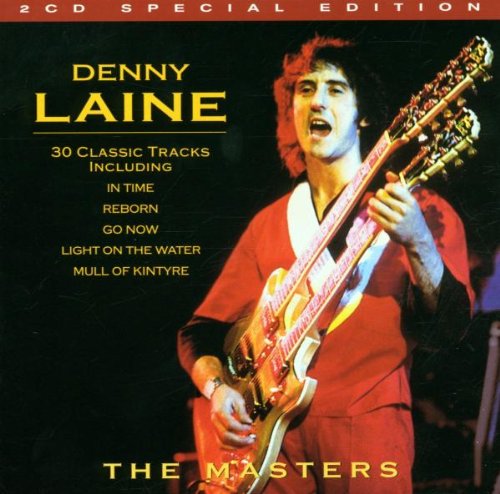Along with Linda (Eastman) McCartney and John Lennon, Denny Laine was one of Paul McCartney’s three most-important partners.
Despite this, Laine—who died Dec. 5 at 79 with a musical resume few can match—remained relatively unknown.
Laine had already co-founded the Moody Blues—fronting the band on its first hit, “Go Now,” a track he played frequently on stage with Wings—the Incredible String Band and Ginger Baker’s Air Force when McCartney called looking for a partner in his new, post-Beatles group. Though he left the Moody Blues after just two years, Laine’s import was such that the Rock and Roll Hall of Fame—which has a habit of excluding early members of inducted bands—included Laine when the group made its belated entrance in 2018.
Laine and McCartney had struck up a rapport when the Moodies and the Fabs shared concert bills in the early 1960s and McCartney knew talent when he saw and heard it. Laine accepted McCartney’s proposal and McCartney’s third-most-important partnership was born.
Like McCartney, Laine was an accomplished multi-instrumentalist and songwriter and, also like McCartney, sung with a powerful rasp that created an equally powerful blend on stage and in the studio. During Wings’ decade-long run, Laine was the only constant member of the group not named McCartney and, in fact, the band recorded its breakthrough, 1973’s Band on the Run, and its penultimate LP, 1978’s London Town, as a trio consisting of McCartney, McCartney and Laine.
That Laine died 50 years to the day after Band on the Run’s U.S. release and two days before the first single from its forthcoming anniversary reissue was announced is something befitting a veteran cosmic rocker.
On stage, Laine picked up a bass when McCartney switched to guitar or piano and Laine switched to guitar or keys or percussion or harmonica when McCartney picked up his bass. Much more than a sideman, Laine co-wrote such tracks as “Mull of Kintyre” and sung lead on “Spirits of Ancient Egypt,” “Richard Cory,” “Picasso’s Last Words (Drink to Me)” and others.
Despite all this, Laine was anonymous enough that when he toured as a solo act, he would be billed parenthetically as “from Paul McCartney & Wings/Moody Blues.” I was fortunate enough to witness Laine perform a very strong show at a bar in Ohio in 2017. As the gig unfolded and Laine poked around the corners of his songbook, I found myself wondering what the Moody Blues might have become if Laine had stuck around and—just as importantly—what Wings might have become if he hadn’t.
It’s a drag we don’t know the answer to the first question and a blessing the answer to the second will never be answered.



No Comments comments associated with this post